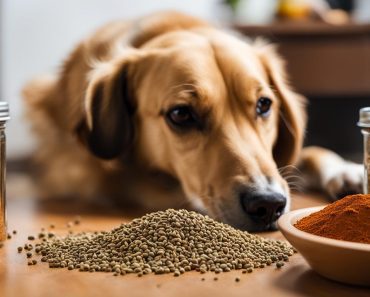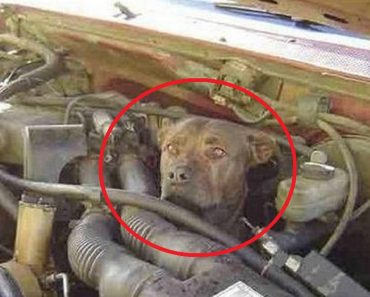
As a responsible pet owner, you may be wondering if it’s safe to share your beloved string cheese snack with your furry friend. In this article, we will explore whether dogs can safely consume string cheese and provide valuable information to help you make an informed decision.
Key Takeaways:
- String cheese can be safe for dogs in moderation, but it’s important to consider their lactose intolerance or allergies.
- Cutting or breaking string cheese into smaller pieces is essential to prevent choking hazards for your dog.
- Other dog-friendly cheese options include cheddar, cottage cheese, and Swiss cheese, while blue cheese, parmesan, and goat cheese should be avoided.
- Consulting with your veterinarian is always recommended before introducing cheese or any human food into your dog’s diet.
Understanding the Nutritional Value of String Cheese for Dogs
String cheese, which is essentially processed mozzarella, can provide some nutritional benefits to dogs. It is a good source of protein, calcium, and essential vitamins and minerals. Protein is crucial for your dog’s overall health and helps support muscle development and repair. Calcium is important for bone strength and density, while vitamins and minerals contribute to various bodily functions. However, it’s important to feed string cheese to your dog in moderation, as part of a balanced diet.
Here is a breakdown of the nutritional value of string cheese for dogs:
| Nutrient | Amount per Serving (1 stick – 28g) |
|---|---|
| Protein | 6 grams |
| Calcium | 220 milligrams |
| Fat | 5 grams |
| Vitamin A | 130 International Units |
| Vitamin B12 | 0.2 micrograms |
| Phosphorus | 114 milligrams |
Please note that these values may vary slightly depending on the brand and type of string cheese.
It’s important to remember that while string cheese can provide nutritional benefits, it should not replace a complete and balanced diet formulated specifically for dogs. Consult with your veterinarian to determine the appropriate amount of string cheese or any other human food to incorporate into your dog’s diet.

Risks and Considerations of Feeding Dogs String Cheese
While string cheese can be safe for dogs, it’s important to be aware of certain risks and considerations before offering it to your furry friend. Although string cheese is low in lactose and salt, which makes it a suitable option for dogs with no lactose intolerance or allergies, the stringy texture can pose a choking hazard. To avoid any potential accidents, it’s crucial to cut or break the string cheese into smaller, bite-sized pieces. This will make it easier for your dog to consume it safely.
Another aspect to consider is the fat content of string cheese. While dogs need some fat in their diet, excessive consumption of high-fat foods like string cheese can lead to weight gain and other health issues. It’s important to remember that treats, including string cheese, should only make up a small portion of your dog’s overall diet. Moderation is key.
Additionally, some dogs may experience digestive upset after eating string cheese. This can manifest as diarrhea, vomiting, or an upset stomach. If your dog has a sensitive stomach or has previously shown signs of intolerance to dairy products, it’s advisable to avoid feeding them string cheese altogether. It’s always best to consult with your veterinarian before making any changes to your dog’s diet.
| Cheese Type | Safety for Dogs |
|---|---|
| String Cheese (Processed Mozzarella) | Safe in moderation, but pose a choking hazard if not cut into small pieces |
| Cheddar Cheese | Safe in moderation, high in fat |
| Cottage Cheese | Safe in moderation, low in lactose, provides protein |
| Swiss Cheese | Safe in moderation, low in lactose, provides calcium |
| Blue Cheese | Avoid due to potential toxicity |
| Parmesan Cheese | Avoid due to high salt and fat content |
| Goat Cheese | Avoid due to potential lactose intolerance and high fat content |
Remember, every dog is different, and what works for one may not work for another. It’s important to monitor your dog’s response to any new food, including string cheese, and make adjustments accordingly. As a general rule, always introduce new foods gradually and in moderation to prevent any digestive upsets or adverse reactions.
Alternatives to String Cheese for Dogs’ Snacks
If you’re looking for alternative snack options for your canine companion, there are plenty of safe and tasty alternatives to string cheese. While string cheese can be a convenient and enjoyable treat for dogs, it’s always good to have a variety of options to keep their taste buds satisfied. Here are a few alternatives that you can consider:
- Cheese Treats: Instead of string cheese, you can opt for specifically formulated cheese treats designed for dogs. These treats are often made with natural, dog-friendly ingredients and come in various flavors and shapes to cater to your furry friend’s preferences.
- Fruit and Vegetable Snacks: Many dogs enjoy the crunch and sweetness of fruits and vegetables. Offer your dog bite-sized pieces of apples, carrots, or blueberries as a healthy alternative to string cheese. Just make sure to remove any seeds or pits and avoid toxic fruits like grapes and raisins.
- Peanut Butter: Most dogs go crazy for peanut butter! Spread a small amount of peanut butter on a dog-friendly biscuit or inside a Kong toy for a delicious and entertaining snack. Just be sure to choose unsalted and unsweetened peanut butter without any xylitol, as this artificial sweetener can be toxic to dogs.
“Dogs can enjoy a variety of safe and tasty snacks that provide both nutrition and enjoyment.”
Remember, moderation is key when it comes to treating your dog. Snacks should only make up a small portion of their overall diet, and it’s important to consider their individual dietary needs and any existing health conditions. Consult with your veterinarian for personalized recommendations on the best snack options for your furry friend.

| Snack | Description |
|---|---|
| Cheese Treats | Specifically formulated dog treats made with natural ingredients. |
| Fruit and Vegetable Snacks | Healthy and crunchy options like apples, carrots, and blueberries. |
| Peanut Butter | Unsalted and unsweetened peanut butter as a tasty and entertaining treat. |
Types of Cheese Safe for Dogs
While string cheese is one option, there are other types of cheese that are safe and suitable for dogs to enjoy. Dogs can benefit from the nutritional value and taste of various cheeses, making them a great occasional treat or training reward. Here are some dog-friendly cheese options:
- Cheddar Cheese: Cheddar cheese is a popular choice among dog owners. It is relatively low in lactose and offers a rich flavor that dogs often enjoy. You can cut it into small cubes or shreds for your furry friend to savor.
- Cottage Cheese: Cottage cheese is another safe and healthy option for dogs. It is low in lactose and packed with protein. You can serve it as a standalone treat or mix it with your dog’s regular food for added taste and texture.
- Swiss Cheese: Swiss cheese is known for its mild and nutty flavor. It is also low in lactose, making it a suitable choice for dogs. Just remember to feed it in moderation, as it can be high in fat.
When offering cheese to your dog, it’s important to consider portion sizes. Too much cheese can lead to weight gain and digestive issues. Remember, cheese should be given as an occasional treat and should not replace a balanced diet tailored to your dog’s specific nutritional needs.

Always monitor your dog while they’re enjoying cheese or any other food to ensure they chew it properly and don’t choke. If you notice any signs of discomfort or digestive upset after feeding cheese, consult your veterinarian.
In summary, dogs can enjoy string cheese in moderation, but there are other cheese options that are safe and suitable for their consumption. Cheese can provide a tasty and nutritious addition to your dog’s diet, but it should be given in moderation and as part of a balanced meal plan. Remember to consult with your veterinarian before introducing any new food to your dog’s diet to ensure their individual needs are met.
Cheese to Avoid for Dogs
Not all types of cheese are safe for dogs, and it’s important to be aware of the cheeses that should be avoided. While dogs can enjoy certain cheeses in moderation, others can cause digestive issues, toxicity, or be too high in fat content. Here are some common types of cheese that you should avoid feeding to your furry friend:
- Blue cheese: Known for its strong flavor and moldy appearance, blue cheese contains a substance called Roquefortine C, which can be harmful to dogs if consumed in large quantities. It may lead to symptoms such as vomiting, diarrhea, and even tremors.
- Parmesan cheese: Although parmesan cheese is not toxic to dogs, it is high in fat and salt content. Consumption of excessive amounts can lead to stomach upset, pancreatitis, and weight gain. It’s best to avoid giving parmesan cheese to your furry companion.
- Goat cheese: While some dogs may tolerate small amounts of goat cheese, it is generally not recommended. Goat cheese contains lactose, which can be difficult for dogs to digest, leading to gastrointestinal issues such as diarrhea and bloating.
When it comes to feeding your dog cheese, it’s crucial to choose safe options that won’t harm their health. While the cheeses listed above should be avoided, there are many other types of cheese that are generally safe for dogs. Always remember to consult with your veterinarian before introducing any new foods into your dog’s diet.

| Type of Cheese | Safety for Dogs |
|---|---|
| String Cheese | In moderation, but cut into small pieces to prevent choking hazards. |
| Cheddar Cheese | Safe for dogs, but feed in moderation due to high fat content. |
| Cottage Cheese | Safe and often recommended for dogs due to its low lactose content and high protein value. |
| Swiss Cheese | Safe for dogs, but feed in moderation as it can be high in sodium. |
String Cheese and Dog Digestion
Before feeding your dog string cheese, it’s important to consider how it may affect their digestion. While string cheese is generally safe for dogs to consume in moderation, it’s essential to be aware of potential digestive issues that could arise.
One common concern is lactose intolerance. Although string cheese is low in lactose compared to other dairy products, some dogs may still have difficulty digesting it. Lactose intolerance can lead to digestive discomfort, including gas, bloating, and diarrhea. If you suspect that your dog is lactose intolerant, it’s best to avoid feeding them string cheese or any other dairy products.
Another consideration is the stringy texture of the cheese. While dogs may enjoy pulling apart string cheese, the strings can pose a choking hazard. To prevent any accidents, it’s crucial to cut or break the string cheese into smaller, more manageable pieces before offering it to your furry friend.
Additionally, it’s important not to overfeed your dog with string cheese or any other type of cheese. While cheese can be a tasty and nutritious treat, it should only make up a small part of your dog’s diet. Too much cheese can lead to weight gain and potential digestive issues.
Overall, if your dog doesn’t have any lactose intolerance or allergies, and you’re cautious about the size of the pieces you offer, string cheese can be a safe and enjoyable occasional treat. However, it’s always wise to consult with your veterinarian before introducing any new foods into your dog’s diet to ensure their individual needs and health are taken into account.

Conclusion
While dogs can eat string cheese in moderation, it’s crucial to exercise caution and consult with your veterinarian before incorporating it into their diet. String cheese, which is essentially processed mozzarella, is low in lactose and salt, making it a suitable option for dogs. However, the stringy texture can pose a choking hazard, so it’s important to cut or break it into smaller pieces before feeding it to your dog.
When considering cheese options for your furry friend, other types such as cheddar, cottage cheese, and Swiss cheese are generally safe for dogs to consume. These cheese varieties provide additional options for treating or rewarding your pet. However, it’s important to note that certain cheeses like blue cheese, parmesan, and goat cheese should be avoided due to their potential toxicity or high fat content.
As always, it’s best to consult with your veterinarian before giving cheese or any other human food to your dog. They can provide personalized advice based on your dog’s specific dietary needs, any potential allergies, or other health considerations. Your veterinarian will be able to guide you on the appropriate portion sizes and frequency of cheese consumption to ensure your dog’s overall well-being.
Remember, a balanced and nutritious diet tailored to your dog’s individual requirements is key to their overall health. While the occasional treat can be a delightful reward, it’s essential to prioritize your pet’s nutritional needs and make informed decisions about their diet. With careful consideration and expert guidance, you can safely incorporate string cheese or other suitable cheese options into your dog’s snacking routine.
FAQ
Can dogs eat string cheese?
Dogs can eat string cheese in moderation, as long as they don’t have any lactose intolerance or allergies. String cheese, which is essentially processed mozzarella, is low in lactose and salt, making it a suitable option for dogs. However, the stringy texture can pose a choking hazard, so it’s important to cut or break it into smaller pieces before feeding it to your dog.
What other types of cheese are safe for dogs?
Other types of cheese that are generally safe for dogs include cheddar, cottage cheese, and Swiss cheese. However, certain cheeses like blue cheese, parmesan, and goat cheese should be avoided due to their potential toxicity or high fat content. As always, it’s best to consult with your veterinarian before giving cheese or any other human food to your dog.
Are there any risks associated with feeding dogs string cheese?
While string cheese can be a safe and nutritious treat for dogs, there are some risks and considerations to keep in mind. The stringy texture can pose a choking hazard, so it’s important to cut or break it into smaller pieces before feeding it to your dog. Additionally, dogs with lactose intolerance or allergies may experience digestive issues if they consume string cheese. It’s always best to monitor your dog’s reaction and consult with your veterinarian if you have any concerns.
What are some alternative snack options for dogs?
If you’re looking for alternative snack options for your dog, there are plenty of safe and healthy choices. Some options include carrot sticks, apple slices (without the seeds), plain cooked chicken or turkey, and dog-specific treats that are designed to meet their nutritional needs. Remember to always introduce new foods gradually and watch for any adverse reactions.
How does string cheese affect a dog’s digestion?
String cheese, like any food, can affect a dog’s digestion differently depending on their individual tolerance and digestive system. While string cheese is generally low in lactose and salt, dogs with lactose intolerance or allergies may experience digestive issues if they consume it. It’s important to monitor your dog’s digestion and consult with your veterinarian if you notice any unusual symptoms or concerns.






